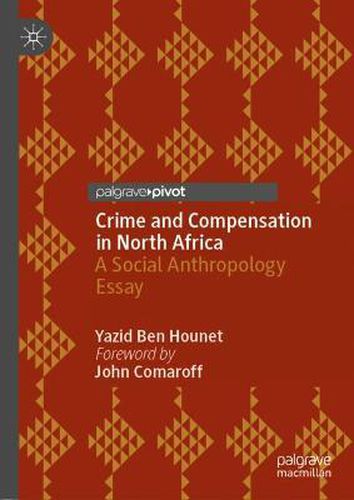Readings Newsletter
Become a Readings Member to make your shopping experience even easier.
Sign in or sign up for free!
You’re not far away from qualifying for FREE standard shipping within Australia
You’ve qualified for FREE standard shipping within Australia
The cart is loading…






This title is printed to order. This book may have been self-published. If so, we cannot guarantee the quality of the content. In the main most books will have gone through the editing process however some may not. We therefore suggest that you be aware of this before ordering this book. If in doubt check either the author or publisher’s details as we are unable to accept any returns unless they are faulty. Please contact us if you have any questions.
As the 21st century began, Algeria, Morocco, and North Sudan launched some much-publicised reconciliation policies, or, in the case of North Sudan, pacification policies. Algeria, following its Clemency policy (1995) and Civil Concord Law (1999), held a referendum in 2005 and subsequently implemented the measures of its Charter for Peace and National Reconciliation. This charter is Algeria’s latest policy aimed at settling the accounts of a murderous decade (1990s) between the state and armed Islamic groups. In Morocco, an arbitration committee was set up in 1999, followed by the Equity and Reconciliation Commission in 2004, to turn the page on the Years of Lead -a period during the rule of King Hassan II during which state crimes such as torture, imprisonment, and murder were committed. Finally, in Sudan (North Sudan since 2011), peace negotiations were held in 1989 and a peace process has been ongoing since 2005, with an aim to resolve violent conflicts and war crimes that are shaking Darfur and North Kordofan. At the centre of all these reconciliation and pacification mechanisms lies a practice that has been scarcely studied: (monetary) compensation for the crimes committed.
Shedding light on this under-studied topic from the North African field, this volume investigates: What meanings can compensation have when it is aimed at repairing crimes? Is it necessary, sufficient, or admissible? How can it be implemented and accepted by the victims themselves and by society? These questions about compensation lead the reader through discussions on the nature of crime, punishment, reparation, reconciliation, and the way these concepts were and are now understood in these three North African countries.
$9.00 standard shipping within Australia
FREE standard shipping within Australia for orders over $100.00
Express & International shipping calculated at checkout
This title is printed to order. This book may have been self-published. If so, we cannot guarantee the quality of the content. In the main most books will have gone through the editing process however some may not. We therefore suggest that you be aware of this before ordering this book. If in doubt check either the author or publisher’s details as we are unable to accept any returns unless they are faulty. Please contact us if you have any questions.
As the 21st century began, Algeria, Morocco, and North Sudan launched some much-publicised reconciliation policies, or, in the case of North Sudan, pacification policies. Algeria, following its Clemency policy (1995) and Civil Concord Law (1999), held a referendum in 2005 and subsequently implemented the measures of its Charter for Peace and National Reconciliation. This charter is Algeria’s latest policy aimed at settling the accounts of a murderous decade (1990s) between the state and armed Islamic groups. In Morocco, an arbitration committee was set up in 1999, followed by the Equity and Reconciliation Commission in 2004, to turn the page on the Years of Lead -a period during the rule of King Hassan II during which state crimes such as torture, imprisonment, and murder were committed. Finally, in Sudan (North Sudan since 2011), peace negotiations were held in 1989 and a peace process has been ongoing since 2005, with an aim to resolve violent conflicts and war crimes that are shaking Darfur and North Kordofan. At the centre of all these reconciliation and pacification mechanisms lies a practice that has been scarcely studied: (monetary) compensation for the crimes committed.
Shedding light on this under-studied topic from the North African field, this volume investigates: What meanings can compensation have when it is aimed at repairing crimes? Is it necessary, sufficient, or admissible? How can it be implemented and accepted by the victims themselves and by society? These questions about compensation lead the reader through discussions on the nature of crime, punishment, reparation, reconciliation, and the way these concepts were and are now understood in these three North African countries.